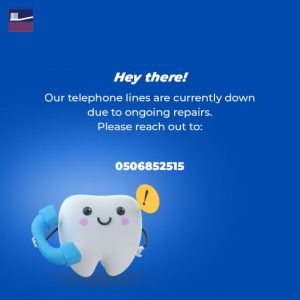Common symptoms that help identify if dental intervention is necessary are: tooth and mouth aches, jaw injury, misaligned bite, swollen gums, cavities, and sinus problems. If you experience these issues, promptly schedule an appointment with your dentist. On the condition that wisdom teeth emerge fully and are positioned properly, they do not need to be removed. However, preventative action can be done to avoid future discomfort. Surgery can become more difficult as a person ages because the bones grow stronger. Waiting too long could cause severe bleeding, damaged teeth, and loss of feeling and control on the mouth and jaw.
If an extraction appointment is already in place, use this guide for pre- and post-operation do’s and don’ts. Let’s dive right into the prep for wisdom teeth removal guide.
Before the Surgery: What To Do Before Your Wisdom Teeth Surgery
Do:
- Discuss medications with the doctor. Certain drugs react with the anesthesia used in wisdom teeth removal. Make sure to be transparent to avoid complications during the surgery.
- Stock up on post-op necessities like soft food and beverages, pain medication, and cold compresses to reduce activity after the operation.
- Dress comfortably. A loose shirt with short sleeves is recommended in the case of intravenous injections. Wear shoes that you can easily step in and out of to avoid unnecessary bending. It is imperative to minimize your movement to avoid problems.
Don’t:
- Don’t eat and drink the night before your appointment. A person might be at risk of regurgitation and ensuing airway obstruction if anesthesia is administered on a full stomach. Take meals earlier to prevent complications.
- Don’t forget to clean your teeth thoroughly. Sanitize the mouth properly to keep it clear of debris that might cause infections to the surgical area.
- Don’t bring unnecessary items in your “surgery bag”. Pack light to find necessities faster. This can save the patient or their companion’s time when finding documents, IDs, or cards needed post-op.
After the surgery: Dos and Don’ts After Wisdom Tooth Extraction
Do:
- Take proper rest. Avoid strenuous activities so as to not aggravate the surgical area.
- Take medications when necessary. Consult with the dentist for the best pain-relief medications in case of post-surgery pain. Make use of cold compress to help relieve inflammation in the mouth as well.
- Take note of heavy bleeding. Seek advice from the dentist immediately for a quick assessment.
Don’t:
- Don’t drive yourself home. The effects of anaesthesia may take time to wear off, inhibiting the proper use of mental faculties needed when driving. Make appointments with family, friends, or hired vehicles prior to your dental appointment.
- Don’t eat hard, hot, or spicy food. These types of food may irritate the extraction site. Opt for soft food such as soups, eggs, and mashed potatoes instead.
- Don’t brush your teeth too hard, especially near the surgical area, 24 hours post-op. Use mouthwash and gargle gently to sanitize the area in the meantime.
Another important aspect to learn is “What to eat after wisdom tooth removal?” Usually, we prefer a liquid diet or seedless fruits, oatmeal, soups, or something cold always helps. The first week is usually the hardest, where you have to be cautious of your diet, but slowly and steadily, you can start eating the food you love during the second week. For more in-depth diet consultation or the procedure about how to prep for wisdom teeth removal, book an appointment at a dental clinic in Abu Dhabi.
Any medical treatment with “extraction” or “surgery” attached to it can sound frightening, but wisdom teeth extraction is completely safe. A quick visit to a good oral surgeon in Dubai will greatly ease feelings of anxiety common before any surgery. Book a consultation now to receive exceptional care and treatment to make your smile beautiful and painless.
FAQs: Wisdom Tooth Extraction Preparation
What to do before your wisdom teeth surgery?
Before wisdom teeth preparation for removal, follow your dentist’s advice as fast as instructed and arrange for someone to drive you. Stock up on soft foods, ice packs, and prescribed medications. Avoid smoking and strenuous activities.
What to eat after wisdom tooth removal?
After wisdom tooth removal, stick to soft foods like yoghurt, soup, and mashed potatoes. Use ice packs to reduce swelling, and take prescribed pain medications. Avoid hot, spicy, or crunchy foods. Don’t smoke, and follow post-op care instructions diligently.
Further Reading:





